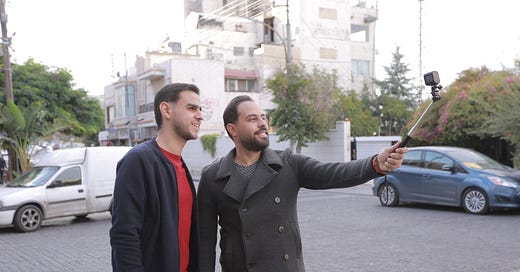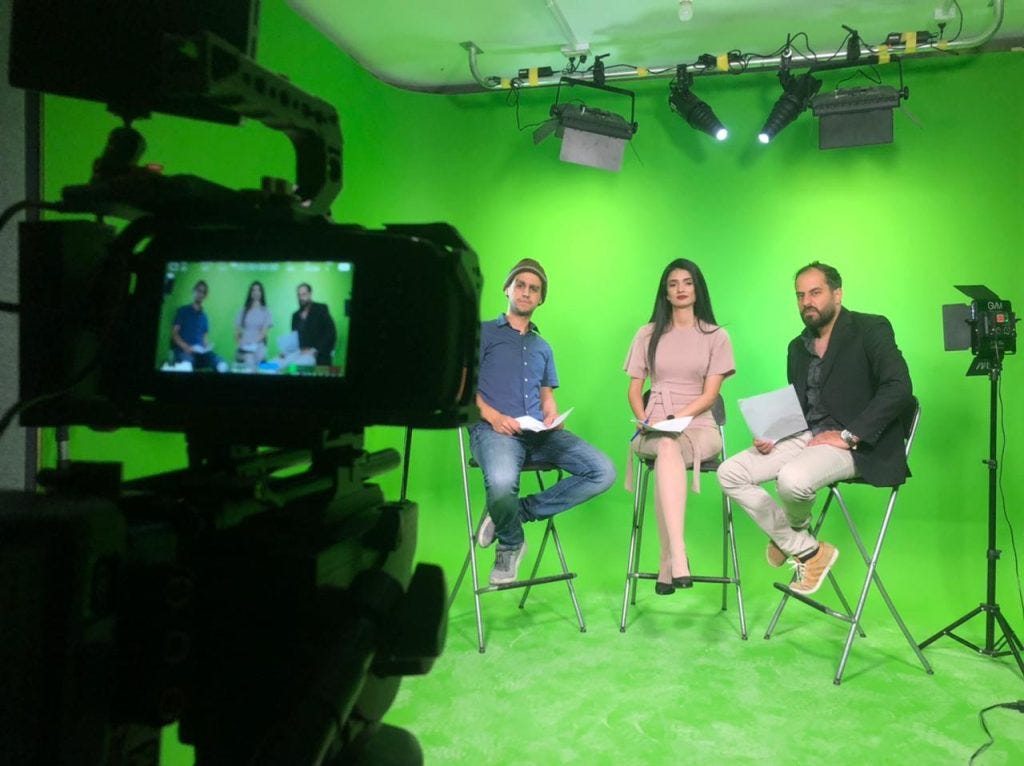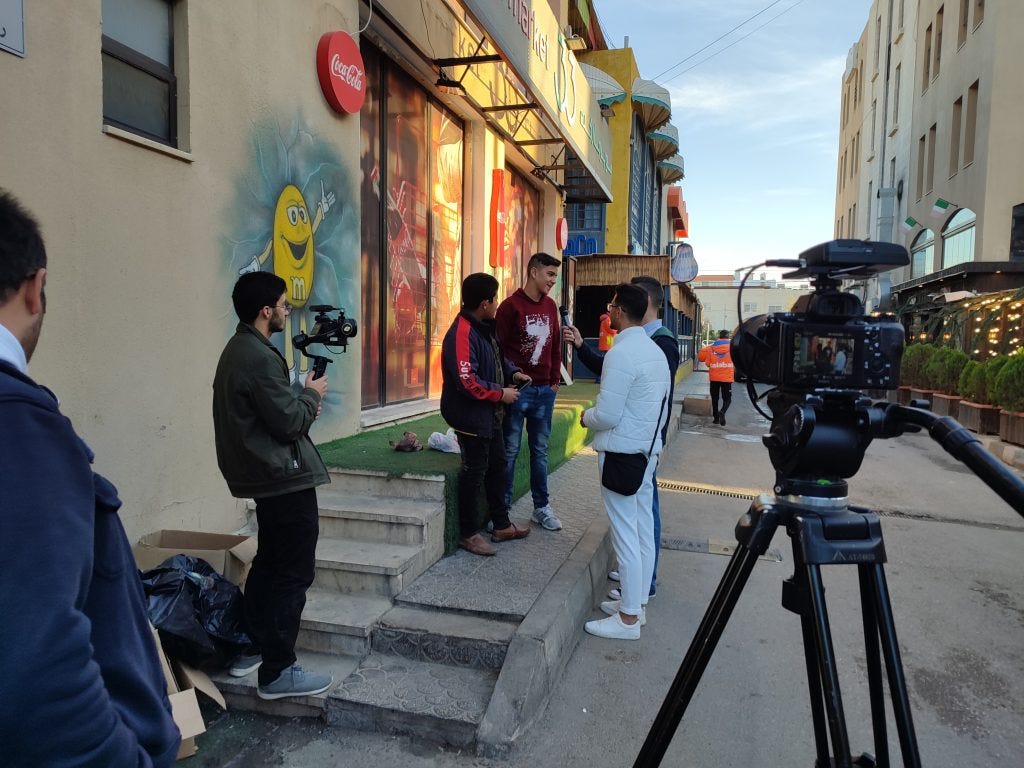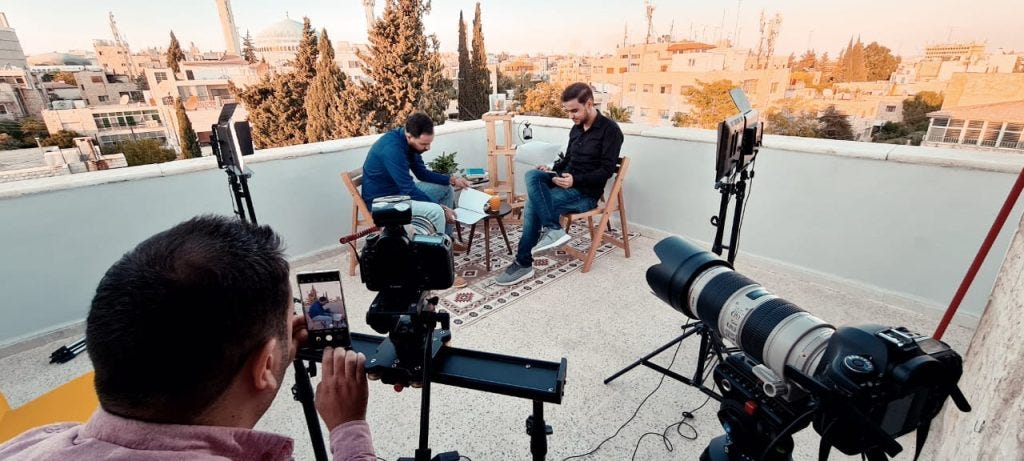Is Jordan Ready to Tackle Taboos?
A new program from the team behind online show Schizophrenia confronts Jordan’s least talked-about subjects
There have been moments when challenging the Jordanian public to confront taboos seemed like a bad idea, bordering on dangerous, but Osama Issa and Moath Abu Lail refused to be intimidated by aggressive behavior in the street and threats on social media. Instead, they focused on the impact their popular YouTube program Schizophrenia had on viewers, whose response has changed significantly since those difficult early days.
“People come to us and say ‘you have changed my life or ‘I look at things differently now. Sometimes they send emotional messages saying our programs have given them hope in bad times,” says Issa, 30, a former news anchor.
He teamed up with Abu Lail, a friend of more than 12 years, to launch Schizophrenia in 2017. It quickly caught on, running for four seasons and covering issues including women’s rights, religious freedoms, sex phobia, and social equality. At its height, the show drew almost a million viewers, attracting audiences from across the Middle East as well as Arab communities in Europe.
Inspired by Schizophrenia’s success, the pair co-founded Shezomedia Production Company in 2020 to make more programs foregrounding human rights and individual freedoms in Jordan. Most of the shows are released on Shezomedia’s Facebook page, which has 90,000 followers.
Topics discussed often cause backlash in Jordan
The topics they tackle often provoke a furious backlash in Jordan’s conservative society, where many issues are considered too taboo to talk about. “We still get threats, and in the early days we were afraid to walk in the street – people would tell us we are ruining society and going against our country’s traditions,” says Abu Lail, 30. “But now a lot of people have changed their minds and support what we do.”
In one episode on early marriage, Abu Lail conducts interviews at random on the street, asking members of the public for their views on early marriage. Several argue fervently against the practice in Jordan, where the legal age is 18, but in reality, many girls are married sooner. Others say they have no problem with early marriage, indicating the widespread acceptance of a practice that runs counter to the law in a country where custom and tradition often take precedence.
The episode also features Yemeni human rights activist Nada Al-Ahdal, who fled home aged 10 after her parents tried to force her into marriage. Al-Ahdal had seen her aunt commit suicide after being married at the age of 14 and her older sister burn herself to avoid a similar ordeal. When she realized it was her turn, she fled, releasing a video pleading for help that went viral. She later survived being kidnapped by Al-Qaeda and held in South Yemen for 14 days.
Now 19 and a well-known women’s rights activist based in the United Kingdom, Al-Ahdal is also working with Shezomedia on a series called Save the Women about gender equality and women’s rights in the Arab world. It’s one of 11 programs and two films created by the company, which is unique in the Jordan mediascape for its concentration on content designed to raise awareness around human rights.
Next month will see the launch of Shezomedia’s newest production, a new series called You Think So Show. Funded by a grant from Ideas Beyond Borders, the new show takes the successful Schizophrenia formula in a new direction, building on lessons learned over the past five years. “We will address taboos, but not in a confrontational way,” Issa says.
The emphasis will be on finding out what people think and exposing them to different viewpoints, with discussions designed to engage a wider audience that may previously have been alienated by a more provocative approach. “There are some practices and behaviors that Jordanian society just doesn’t accept. We want to encourage people to embrace their differences,” Abu Lail adds.
This includes disability rights, which the pair say are woefully underrepresented in the country. This month, the pair received an award for their coverage of issues affecting disabled people from His Highness Prince Mired bin Raad, President of the Supreme Council for the Rights of Persons with Disabilities in Jordan. “At least 80 percent of the subjects we will cover are not talked about in the media here,” Abu Lail says, emphasizing the importance of bringing under-represented issues into the public sphere.
Interviewees for the new show represent diverse backgrounds and beliefs, bringing together people who might not normally share viewpoints in an atmosphere of open-minded discussion and exchange.
“Shezomedia has an excellent track record of explaining complex ideas in a simple and entertaining way that resonates with viewers in Jordan and across the region,” says Faisal Saeed Al Mutar, Founder and President of Ideas Beyond Borders. “They shine a spotlight on subjects that have been suppressed for too long and bring people hope with open-minded discussions and debate.”






